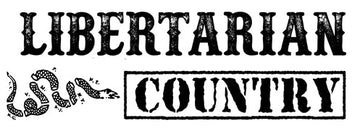The question of forgiveness has haunted humanity for millennia. It is not only a matter of faith or morality but one of reason, justice, and survival. Recently, this timeless question re-emerged with striking clarity in the aftermath of Charlie Kirk’s assassination. His widow, Erika Kirk, publicly expressed forgiveness toward the assassin. Meanwhile, Donald Trump—an ally of Kirk—declared he would never forgive the man who pulled the trigger. These contrasting reactions raise an ancient and profound dilemma: What is the right posture toward those who grievously wrong us?
The Dual Faces of Forgiveness
On one side, forgiveness represents the highest act of moral courage. To forgive does not mean to excuse or condone the act, nor to erase justice. Instead, it means refusing to let bitterness consume one’s soul. Erika’s forgiveness is rooted in principle. By forgiving, she maintains her humanity, refusing to let hatred define her. Philosophically, she asserts mastery over her emotions, declaring that her values are not dictated by the malice of her enemy.
On the other side, refusal to forgive can appear equally rational. Trump’s stance embodies the raw instinct for justice and protection. If someone assassinates a friend, a leader, or an innocent person, to forgive may feel like betrayal—to the victim, to the community, even to justice itself. His refusal is not simply personal vengeance; it symbolizes the demand that evil not be excused, that blood spilled cannot be washed away with words.
Both positions, then, reveal truths. Forgiveness preserves inner freedom. Non-forgiveness protects moral boundaries. The challenge is to reconcile them.
Rational Grounds for Forgiveness
Philosophers and psychologists alike note that holding onto hatred often harms the victim more than the offender. Resentment, like poison, corrodes the vessel that holds it. From a rational perspective, forgiveness can be a form of self-preservation. It prevents one’s inner life from being chained to the offender’s cruelty.
Further, forgiveness can serve as an act of defiance. To say, “I forgive you” is to say, “You do not control me. Your violence cannot dictate the state of my soul.” This, arguably, is a greater victory than vengeance.
Rational Grounds for Non-Forgiveness
Yet forgiveness is not always rational—or at least, not immediately so. There are moments when forgiveness may undermine justice. A society that forgives too quickly risks eroding its moral fabric. If every assassin is immediately absolved, deterrence weakens. The public may perceive such mercy not as virtue but as weakness.
Moreover, there is a distinction between private forgiveness and public accountability. One may forgive in the heart yet still insist that justice be carried out in full. Non-forgiveness, in this sense, becomes a defense of principle: an affirmation that evil deeds must have consequences, that forgiveness should not cancel justice.
A Philosophical Middle Path
The deeper question is not whether we should forgive, but when and how. Forgiveness, to have meaning, must be freely chosen, not demanded. It should not replace justice but complement it. We may forgive the humanity of our enemy while still condemning his actions.
The Stoics remind us that our response is the only thing within our control. We cannot alter the past nor undo a wrong, but we can choose our stance toward it. The Christian ethic calls for forgiveness seventy times seven; the secular ethic calls for responsibility and justice. Perhaps the synthesis is this: forgiveness should be offered as a personal liberation, but justice should remain firm as a societal necessity.
Conclusion: Forgiveness as Principle, Not Weakness
So, should we forgive our enemies? The answer is both yes and no. Yes, if forgiveness frees us from chains of hatred and restores our humanity. No, if forgiveness is used as a substitute for justice or as an excuse for cowardice.
Erika Kirk, in forgiving, demonstrates the strength of her inner life. Donald Trump, in refusing to forgive, highlights the demand for moral accountability. Both voices carry truth. The wise response may be to forgive in spirit while demanding justice in action.
Forgiveness, then, is not an escape from principle but an expression of it. We forgive so we do not become what we hate. We withhold forgiveness when it is used to excuse the inexcusable. And in the tension between these poles lies the paradox of being human—creatures of reason and passion, justice and mercy, vengeance and grace.
The true best way to beat your enemy is by having better shirts! 👇


